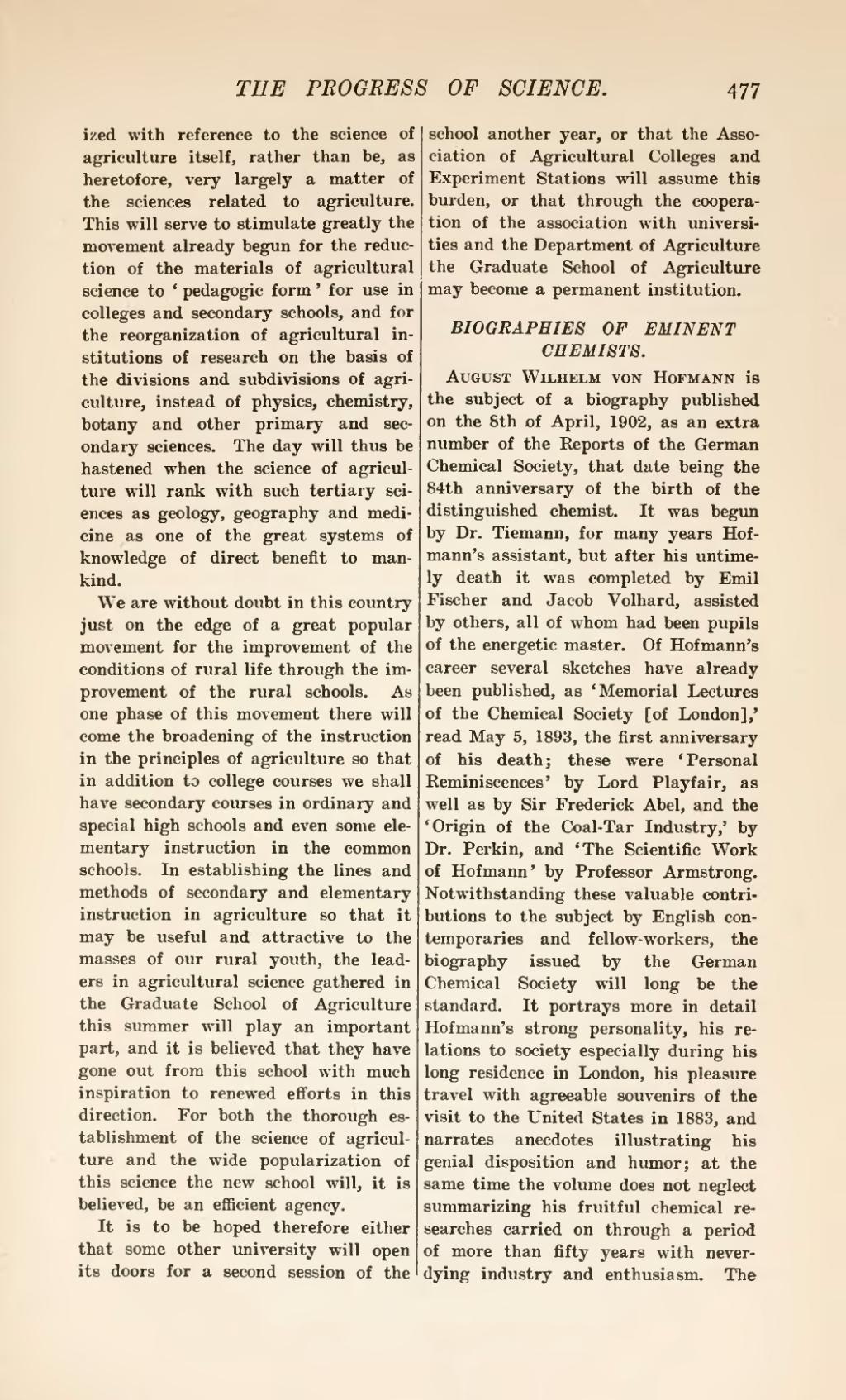ized with reference to the science of agriculture itself, rather than be, as heretofore, very largely a matter of the sciences related to agriculture. This will serve to stimulate greatly the movement already begun for the reduction of the materials of agricultural science to 'pedagogic form' for use in colleges and secondary schools, and for the reorganization of agricultural institutions of research on the basis of the divisions and subdivisions of agriculture, instead of physics, chemistry, botany and other primary and secondary sciences. The day will thus be hastened when the science of agriculture will rank with such tertiary sciences as geology, geography and medicine as one of the great systems of knowledge of direct benefit to mankind.
We are without doubt in this country just on the edge of a great popular movement for the improvement of the conditions of rural life through the improvement of the rural schools. As one phase of this movement there will come the broadening of the instruction in the principles of agriculture so that in addition to college courses we shall have secondary courses in ordinary and special high schools and even some elementary instruction in the common schools. In establishing the lines and methods of secondary and elementary instruction in agriculture so that it may be useful and attractive to the masses of our rural youth, the leaders in agricultural science gathered in the Graduate School of Agriculture this summer will play an important part, and it is believed that they have gone out from this school with much inspiration to renewed efforts in this direction. For both the thorough establishment of the science of agriculture and the wide popularization of this science the new school will, it is believed, be an efficient agency.
It is to be hoped therefore either that some other university will open its doors for a second session of the school another year, or that the Association of Agricultural Colleges and Experiment Stations will assume this burden, or that through the cooperation of the association with universities and the Department of Agriculture the Graduate School of Agriculture may become a permanent institution.
BIOGRAPHIES OF EMINENT CHEMISTS.
August Wilhelm von Hofmann is the subject of a biography published on the 8th of April, 1902, as an extra number of the Reports of the German Chemical Society, that date being the 84th anniversary of the birth of the distinguished chemist. It was begun by Dr. Tiemann, for many years Hofmann's assistant, but after his untimely death it was completed by Emil Fischer and Jacob Volhard, assisted by others, all of whom had been pupils of the energetic master. Of Hofmann's career several sketches have already been published, as 'Memorial Lectures of the Chemical Society [of London],' read May 5, 1893, the first anniversary of his death; these were 'Personal Reminiscences' by Lord Playfair, as well as by Sir Frederick Abel, and the 'Origin of the Coal-Tar Industry,' by Dr. Perkin, and 'The Scientific Work of Hofmann' by Professor Armstrong. Notwithstanding these valuable contributions to the subject by English contemporaries and fellow-workers, the biography issued by the German Chemical Society will long be the standard. It portrays more in detail Hofmann's strong personality, his relations to society especially during his long residence in London, his pleasure travel with agreeable souvenirs of the visit to the United States in 1883, and narrates anecdotes illustrating his genial disposition and humor; at the same time the volume does not neglect summarizing his fruitful chemical researches carried on through a period of more than fifty years with never-dying industry and enthusiasm. The
